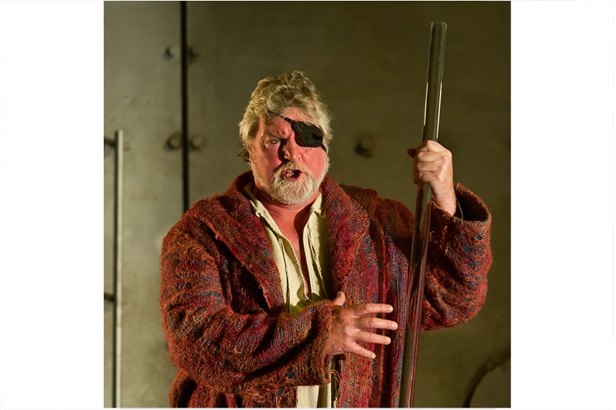Everything is there – except the central character
English Wagnerians really can’t complain about what they’ve been offered this year, so long as they can get around the country, and particularly around the countryside. In London we have only had ENO’S Parsifal, but that was musically magnificent. Many of us found Glyndebourne’s Meistersinger tremendous both musically and as a production, and in the north there have been acclaimed performances, with more to come, of Das Rheingold in concert, a treat I have still in store; and a memorable Walküre, also in concert, in Manchester three weeks ago, which introduced a potentially great Wotan, Egils Silins.
Just before that there was a dramatically strange though sometimes effective, and musically mainly superlatively fine Tristan und Isolde at Grange Park. And now, conveniently but accidentally, the third part of the Ring cycle, Siegfried, the penultimate stage of Longborough’s complete Ring, to be performed, if things go according to plan, in 2013, the bicentenary of Wagner’s birth.
Siegfried is conventionally considered to be the least interesting of the Ring operas, at any rate the first two acts, which you have to endure in order to get to the stupendous Act III, and then the uniformly even more stupendous Götterdämmerung. It’s true that they are the least emotionally involving acts of the Ring, and, for many people more worryingly, that their central figure is a late adolescent with no world experience and who only converses, in those acts, with a malignant dwarf, a giant-turned-dragon, and a singing wood-bird. The idea was that he should be the redeeming hero, but he has everything to learn, and only learns to re-forge his father’s sword, with which he kills the dwarf and the dragon.
Nor does it help that Wagner wrote some of his most demanding heroic music for Siegfried, an immense forging song and lengthy altercations, while his most taxing singing still lies ahead in Act III. When you hear of a new Ring cycle being mounted, normally the first question is ‘Who’s singing Siegfried?’ since almost no one can.
Here, Longborough’s serendipity may have carried the day again. I say ‘may have’ because Daniel Brenna, American-born but resident in Germany, undoubtedly has the voice for the part, with magnificent high notes, a rich middle register and staying power. Owing to visa problems he had very little time to study the role with the conductor, Anthony Negus, the presiding musical genius of the whole project. So, while all the other singers performed in what one might, should call the Goodall tradition — with a firm legato foundation to everything they sang, a complete absence of shouting or screaming and obsessive concern to communicate the text — Brenna manifested none of these. If he had done, many of the problematic aspects of the character would have been solved.
Instead of those we got bellowing when he was arguing or forging, and in his reflective passages, such as the Forest Murmurs, rather maudlin mezza voce. His voice is comparable to the great Alberto Remedios, and he should listen to his classic recording of the cycle under Goodall, even though it is in English. There you hear a Siegfried you can love and be concerned about, which was never true of Brenna, whose acting is also gauche — you need to be sophisticated to act gaucherie. So, dramatically speaking, there was a hole at the centre of this performance, though, it must be said, a very bulky one, decidedly an overfed puppy rather than a young dog.
Everyone else was superb, with the veteran Phillip Joll almost unbearably moving as the Wanderer, desperately pretending that he was distanced from everything he observed, but wracked with torment about each outcome. Act III scene 1, his interrogation of Erda and his supreme attempt at achieving a state of willing resignation, was as fine as you would see or hear it anywhere.
The two quarrelling brothers were both penetrating character studies, too, with Colin Judson as Mime always singing his music, never distorting it: though he could be a bit less pleased with himself. Astonishingly Nicholas Folwell remains a towering Alberich after three decades of singing the role, and his scene with the Wanderer was another high point. As in last year’s Walküre, Alwyn Mellor ignited the final scene with her blazing voice and her committed acting, so that there were moments when even Brenna seemed to be sparked into genuine animation. Negus, whose conducting had been impeccable throughout the evening, with an orchestra now 70-strong, brought the work to its rampant, intoxicating close in the most persuasive way.
My only complaint about the staging, which, in Alan Privett’s safe hands, remains simple and free of directorial conceit, is the ubiquity of the Three Norns. Their first appearance should be when the curtain goes up next year: and, unlike the Wanderer, they should observe, not act. Here they sprung around, doing menial tasks, and handing the Wanderer his Perspex spear each time he absolutely had to have it, while in fact he needs it always. But they are in every way a distracting pest, however much work experience their performers may be getting.






Comments